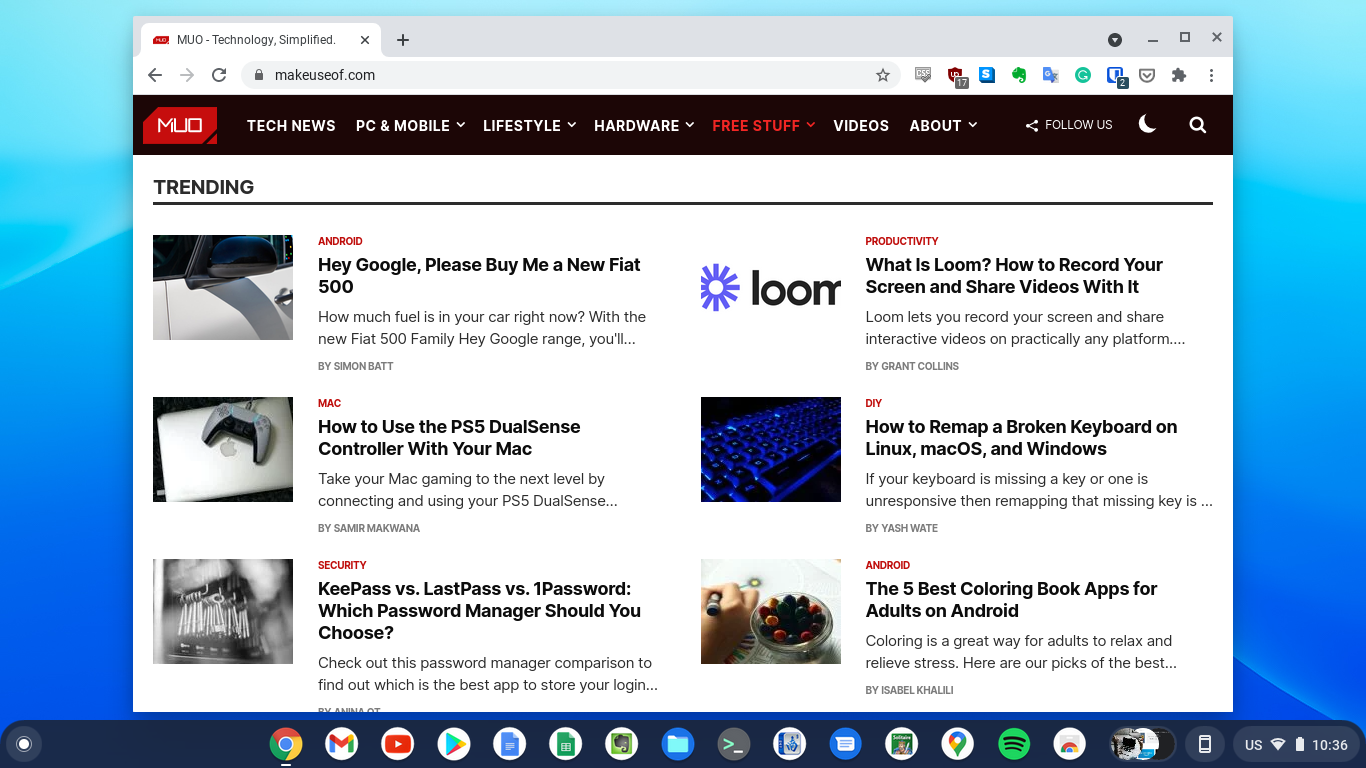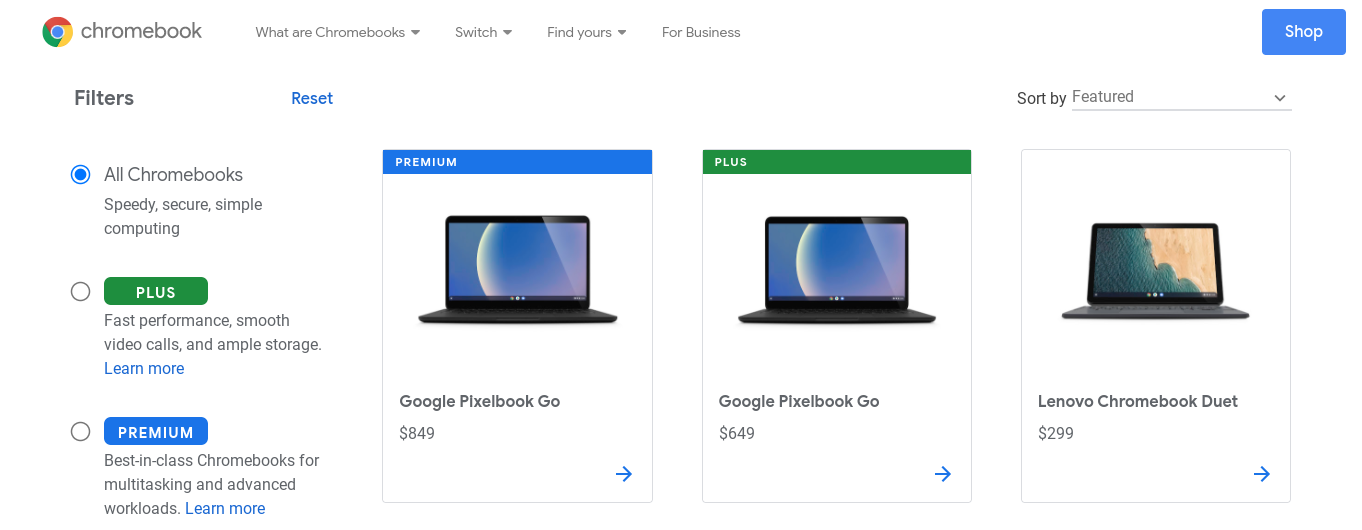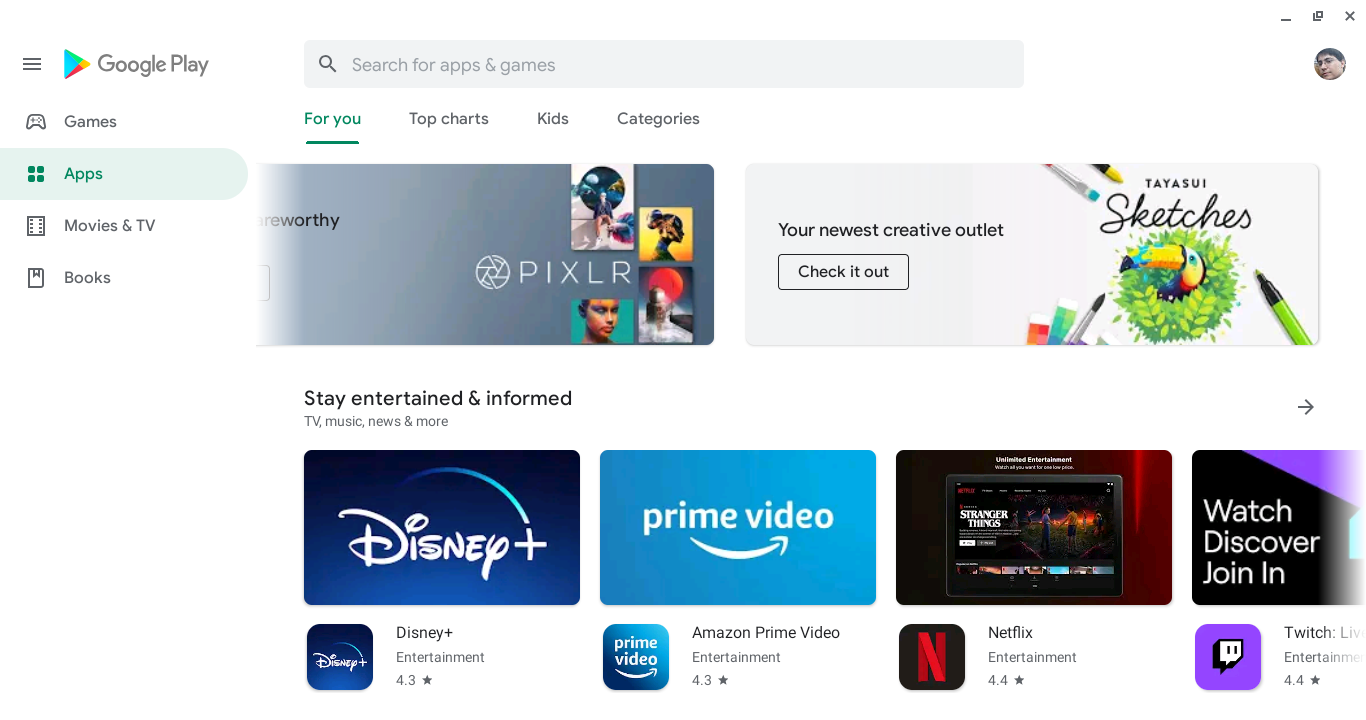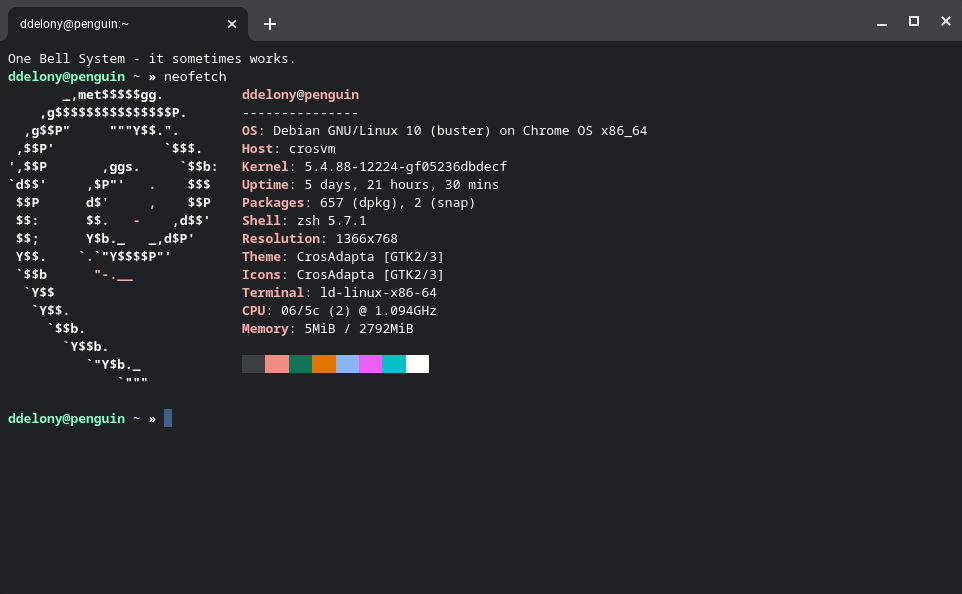If you're in the market for a new laptop, you may be considering a Chromebook. You might have noticed that Chromebooks don't run Windows or macOS, but they have their own operating system known as Chrome OS. Is it something you would want or would you prefer a more conventional operating system for your laptop?
What Is Chrome OS?
Chrome OS is an operating system developed by Google for the Chromebook line of laptops. These laptops are primarily designed to work with web applications, and in the early versions, they were pretty much just a web browser taking over the whole machine.
The name comes from the Google Chrome browser, which is currently the most widely-used web browser in the world.
Overview of Chrome OS
Chrome OS is designed for its simplicity and security. Early on, Google stipulated that Chromebook manufacturers would use SSDs instead of conventional hard drives due to their faster speeds and lower power consumption. The smaller capacities of SSDs in the early 2010s were not a drawback as Chrome OS is more about using the web than for local storage.
Chrome OS is a heavily modified version of the Gentoo Linux distribution. Like its parent browser, Chrome OS has an open-source version called Chromium OS where most of the development happens, similar to the relationship between the Chrome and Chromium browsers.
Google's use cases for Chromebooks are as a secondary computer for quick tasks like email or web searches, according to the original design document.
Consequently, Chrome OS is designed for speed and security. Chromebook firmware is lightweight and omits some hardware features you might find on a traditional PC BIOS. The OS is also sandboxed so an attacker can't gain control of the entire machine. The system check's the operating system integrity at boot time and repairs itself if it detects any modifications to the system files.
Chrome OS's firmware will detect if the OS is missing or damaged on startup, and prompt the user to begin the recovery process.
Due to Chrome OS's emphasis on security, OS updates are released frequently, with OS version lifetimes measured in weeks. The version numbers roughly keep pace with the Chrome browser on other operating systems. Google guarantees Chrome OS updates for a certain period of time under Google's Auto Update Policy. Devices introduced in 2020 and later will be guaranteed for at least eight years.
Chromebooks are attractive to education, particularly for K-12 education in the United States, due to their low cost, security, and ability to be centrally managed through a web-based admin console. Some enterprises also use them for similar reasons.
Chrome OS Devices
Chrome OS runs on Chromebook laptops. Although Google does offer some of its own premium devices like the Pixelbook line, the vast majority of Chromebooks are sold from other computer vendors like Asus, Acer, and Dell, all of which Google showcases on its official Chromebook site.
Chromebook form factors include conventional laptops as well as detachable/convertible laptops and tablets.
As they're designed primarily for use with the web, Chromebooks don't have a lot of local storage, though you can use USB drives, SD cards, and cloud storage if you need more capacity.
The key attraction of Chrome OS is its basis in the cloud making the machine effectively disposable. If you spill a cup of coffee on your Chromebook, all you have to do is head over to your local store, buy another one, and then log in and you can pick up right where you left off.
Chrome OS and Android
Perhaps sensing the limitations of using only web apps, Google added Android app support to Chrome OS, including the Google Play store. You can download just about any app in the Play store and have it work just as it would on an Android device.
Because Chrome OS has a faster update schedule than Android and can run Android apps, Chrome OS tablets or convertibles are a good alternative to Android tablets.
Chrome OS and Linux
One of the most exciting recent developments in the Linux world is Crostini, a containerized Linux development environment that runs within Chrome OS. It's similar to Windows Subsystem for Linux on Windows 10.
While Chrome OS itself is based on Linux, getting at the underlying system has been difficult due to Chrome OS's focus on security. If a user can go root on a Chromebook, so can an attacker.
Previously, the only way to use a full Linux system on Chrome OS was to put it into Developer Mode and install Crouton.
Crostini, an obvious pun on Crouton, maintains the security that Chrome OS is known for while providing a powerful Linux development environment. It's still currently only in beta but is incredibly useful. It's even possible to install graphical applications, something that Microsoft is promising with WSL and currently only works with workarounds.
Better yet, it only takes a few clicks to install. Crostini installs Debian 10 by default but you can install other distributions as well. While it's geared towards developers that are already familiar with Linux, it would be a good introduction to the command line for the uninitiated.
Chromebook Growth
In the decade since the formal introduction of the Chromebook, the platform has taken the laptop market by storm. In 2020, Chromebooks outsold Mac laptops and cut into Windows' market share. It seems that the mythical "year of the Linux desktop" might come about by hiding Chrome OS's Linux origins.
As mentioned earlier, Chromebooks are very popular in schools. In 2019, 60 percent of educational laptop sales were Chromebooks.
Microsoft has responded to the popularity of Chromebooks by launching its own stripped-down OS, Windows 10X, for low-end machines. Only time will tell if Microsoft manages to stave off the Chrome OS onslaught, but Linux partisans were sure users would switch to Linux instead of Windows 8 when Microsoft stopped supporting XP.
Is Chrome OS Right for You?
Whether Chrome OS is right for you depends on what you want to do with your computer. If you mainly work with web apps like Google Docs, Office 365, and Gmail, a Chromebook is a viable option. Even if it's not your primary platform, a Chromebook is handy for these quick web tasks.
Likewise, if you enjoy tinkering with Linux but don't want to fight with your system over drivers, you can install Crostini on your Chromebook. On the other hand, if you like to play hardcore PC games, you might want to wait, though game streaming services like Google Stadia, Shadow by Blade, and Nvidia GeForce Now support Chrome OS, so that might change in the future.
Likewise, if you do a lot of video or image editing, you're better served by a PC or Mac at the moment. Still, Chromebooks are quite useful, with the ability to run Android and even Linux apps. They've come a long way from the days when Chromebooks could effectively only use web apps.
If you've made the decision to buy a Chromebook, read on for some tips on getting the most out of it.





